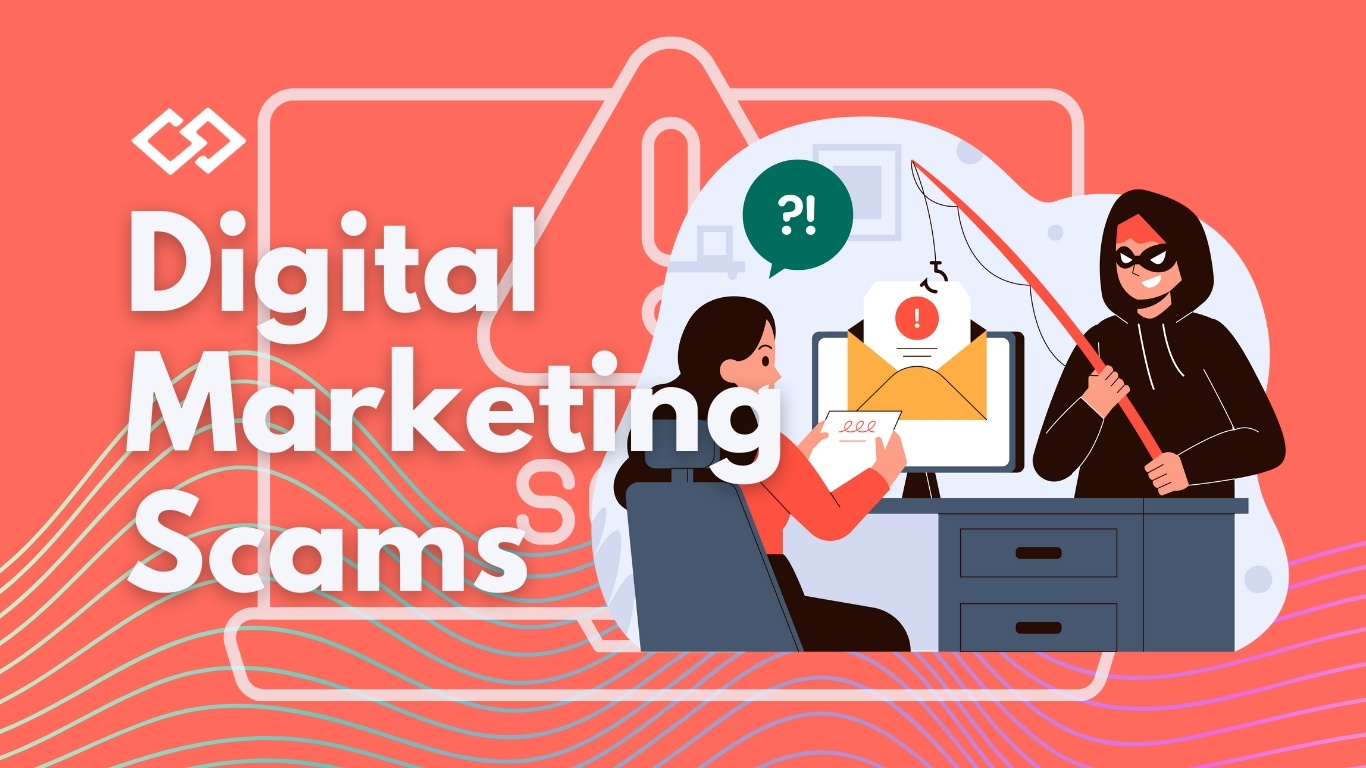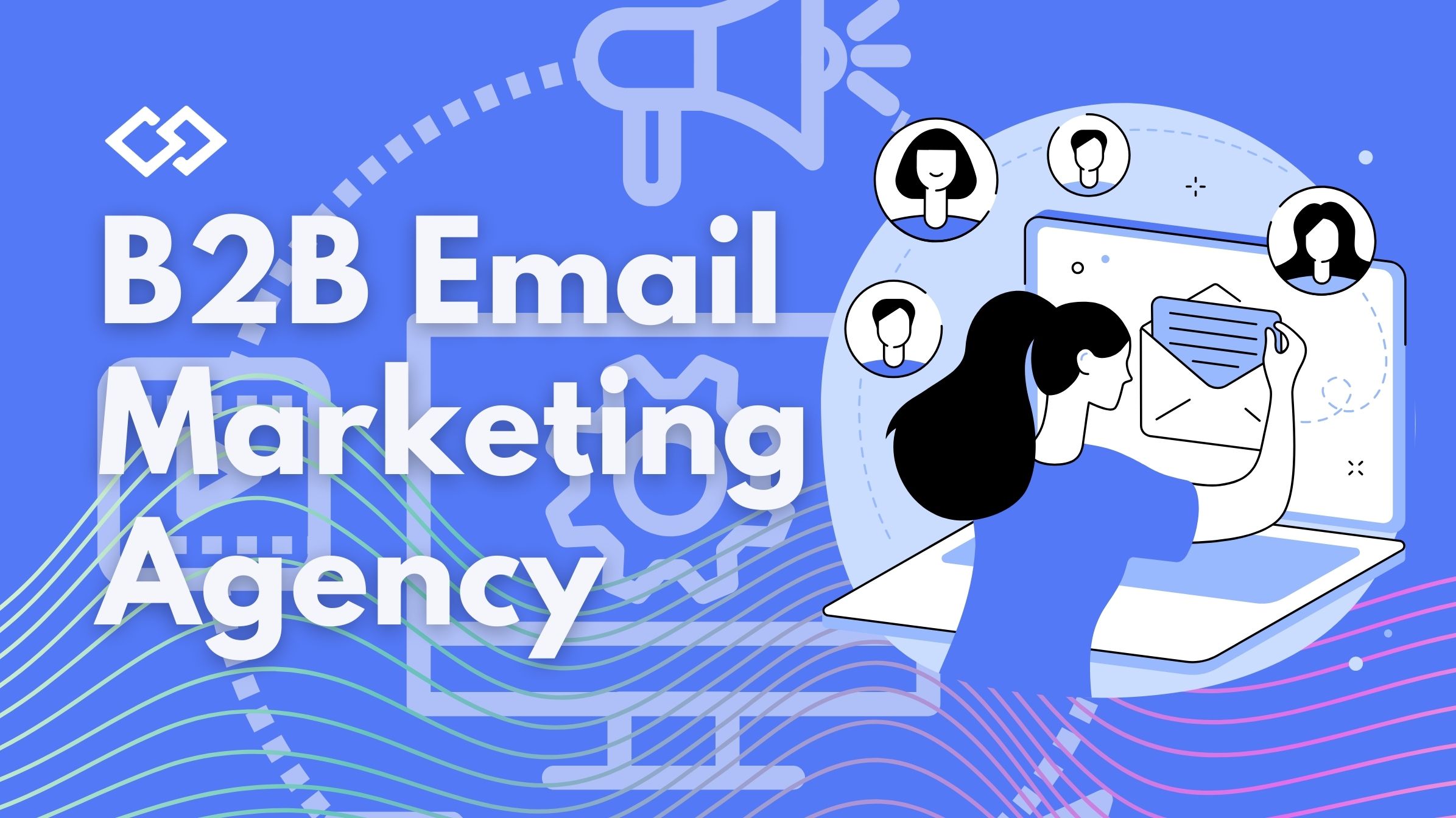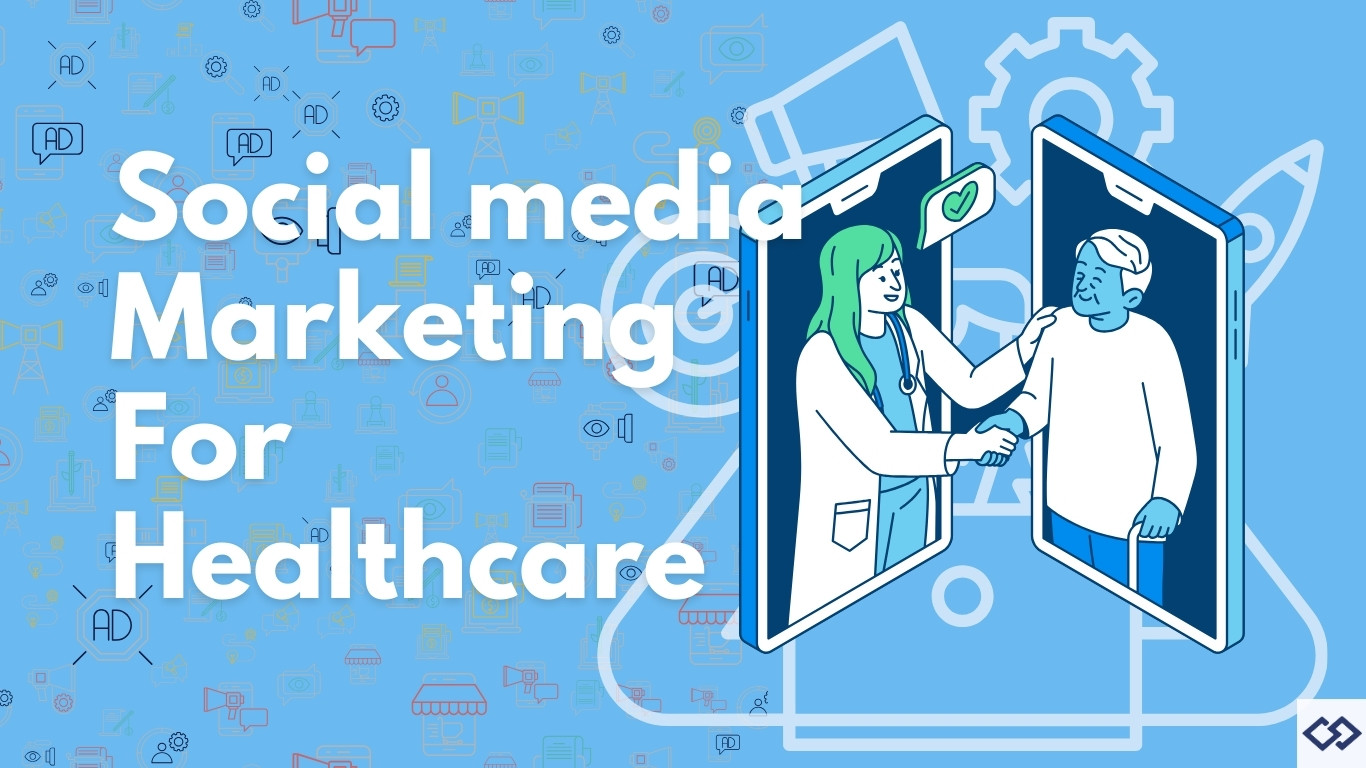
1. Introduction
In today’s digital world, more and more businesses of all sizes are relying on digital marketing to expand reach and generate revenue. But with the growth of online marketing, we have also seen a similar growth of digital marketing scams. All these fraudulent activities are intended to deceive businesses and individuals to invest in fake services or unrealistic promises. Digital marketing companies make all kinds of exaggerated claims about how they can help businesses grow their customer base, boost social media marketing efforts or get them to the top of search engine rankings — and then deliver nothing or, worse, take the money and run.
The bad news is that scams in digital marketing are more common than people think. As online marketing becomes more complex, it is easy to avoid them until it’s too late. In reality, according to a 2020 Federal Trade Commission report, over $1.9 billion was lost to online scams, and a significant part of that was due to fake digital marketing practices, including fake SEO services, false social media growth promises, and fake followers.
In this blog, we’re going to discuss the signs of a digital marketing scam, how to spot them, and most importantly, how you can protect your business from being scammed.
2. The Growing Problem of Digital Marketing Scams
The number of scams looking to take advantage of unsuspecting businesses has skyrocketed as digital marketing remains the cornerstone of business growth. And what’s even more worrying is the sophistication of these scams. Now, fraudulent digital marketing agencies are using tactics that look legitimate at first glance but are impossible to spot until it’s too late.
A 2019 report from Digital Marketing Magazine stated that almost 40% of businesses were misled by marketing agencies who promised higher search engine rankings, more social media engagement and leads that never converted. In fact, fake leads and fake followers are two of the most common tactics used by digital marketing scammers, according to a recent survey by HubSpot. These tactics trick business owners into thinking that what they are doing is working, when in fact they are just creating vanity metrics.
It’s not only one sector that is affected by digital marketing fraud. No industry is safe — from healthcare to eCommerce. For example, fake engagement has been a big problem for businesses trying to build their presence online. Scammers manipulate numbers like social media likes, shares, and comments to make it look like they are successful, which leaves businesses with low conversion rates and unhappy customers. Not only do these deceptive practices waste valuable marketing budgets, but they can also destroy a company’s reputation over the long run.
With online marketing being so important, the rise of these fraudulent activities has never been more concerning. This is a growing problem, and so it’s important to know how to spot scams and protect your business from their effects.
3. Key Red Flags of Digital Marketing Scams
Recognizing the signs of a digital marketing scam early can save your business from unnecessary losses. Here are some key red flags to look out for:
1. Too Good to Be True Promises
One of the biggest red flags is an offer that claims you can become successful overnight, or produce results immediately. Scammers promise to raise your search engine ranking in no time or to get you thousands of new social media followers overnight. In truth, real digital marketing is a slow, strategic and consistently hard thing. If it sounds too good to be true, it probably is.
2. Lack of Transparency
Trustworthy agencies are transparent about their methods and results. If an agency is vague about how they work or hesitant to explain their process, it’s a red flag. Legitimate agencies will share clear details about their tactics, payment terms, and the goals they can realistically achieve. Scammers often avoid transparency, leaving you in the dark about how they plan to execute your strategy.
3. Upfront Payments
While down payments or retainers are standard, be cautious of agencies that demand large, upfront payments without providing clear deliverables. Scammers often request these payments for vague services, such as unsolicited emails or ineffective SEO tactics. Reputable agencies usually tie payments to specific milestones or results, not just one lump sum.
4. Fake Testimonials or Reviews
Scammers may use fake testimonials to create an illusion of success. These might appear on their website or social media but often come from fabricated clients or exaggerated claims. Always verify testimonials by checking independent review platforms like Google Reviews or LinkedIn to ensure authenticity.
5. Unrealistic SEO Guarantees
A legitimate SEO agency will never promise guaranteed rankings. SEO results depend on many factors, such as keyword competition and content quality. Scammers might promise instant rankings through black-hat tactics, which can actually harm your site’s credibility and SEO performance.
6. Overemphasis on Vanity Metrics
Beware of agencies that focus solely on vanity metrics—superficial numbers like social media followers or likes. While these numbers look appealing, they don’t reflect real engagement or business growth. A reputable agency will focus on metrics that matter, such as conversion rates, lead generation, and meaningful engagement.
7. Unclear or Hidden Contract Terms
Always review the contract thoroughly before signing. Scam agencies often hide important details in the fine print, such as hidden fees or unclear cancellation policies. If something feels off or unclear, don’t hesitate to ask for clarification or seek legal advice.
By staying vigilant and knowing these red flags, you can protect your business from falling victim to digital marketing scams.
4. How to Protect Your Business from Digital Marketing Scams
Now that you know how to spot red flags in digital marketing, it’s time to learn how to protect your business. Being proactive ensures your marketing efforts, financial investments, and reputation stay safe. Here are the steps you can take:
1. Research the Agency Thoroughly
Before committing, research the agency’s reputation. Look at Google Reviews, Trustpilot, and Clutch for honest feedback. Avoid relying solely on testimonials from the agency’s website. Also, check their social media for real engagement and look for case studies or past client success stories. If they can’t provide proof, it’s a warning sign.
2. Request a Detailed Strategy Plan
A trustworthy agency will present a clear marketing strategy tailored to your business. The plan should include objectives, tactics like SEO, PPC, and social media marketing, and measurable goals. Avoid agencies offering vague promises like “we’ll get you to the top of Google” without a structured plan.
3. Set Realistic Expectations
Real marketing results take time. If an agency promises immediate results, it’s likely a scam. Ask about how they measure success, like conversion rates or website traffic. A legitimate agency will focus on long-term growth and won’t offer quick fixes.
4. Check for Certifications and Experience
Look for industry certifications like Google Partners or HubSpot to ensure the agency follows best practices. Agencies with experience in your industry will understand your unique challenges and create more tailored strategies.
5. Review Payment Terms
Be cautious of upfront payments or unclear pricing structures. A professional agency will be transparent with payment terms, tied to deliverables and milestones. Make sure to ask for a contract that includes clear payment terms, so you don’t end up with hidden fees.
6. Monitor Your Efforts
Stay involved in the process by requesting regular reports. A trustworthy agency will provide detailed performance reports that show ROI. Tools like Google Analytics and SEMrush help you track the progress of your campaigns independently.
By staying proactive and informed, you can avoid scams and choose a reputable digital marketing partner. For more insights on selecting the right agency, check out these helpful resources:
5. What to Do If You Fall Victim to a Digital Marketing Scam
Unfortunately, even with the best precautions, some businesses still fall victim to digital marketing scams. If you find yourself in this situation, it’s important to know how to respond quickly and effectively to minimize the damage. Here are the key steps you should take:
1. Stop All Payments Immediately
The first and most important step is to halt any payments to the fraudulent agency. If you’ve made any upfront payments, credit card details may still be vulnerable, so contact your bank or credit card provider to put a hold on further transactions. If possible, dispute any charges that were made under false pretenses.
2. Gather Evidence
Collect all communication with the scam agency, including emails, contracts, invoices, and any marketing reports they’ve provided. This will serve as evidence if you decide to take legal action or report the scam. Make sure to keep detailed records of any suspicious activity or unfulfilled promises, like fake followers, fake leads, or unsolicited emails.
3. Report the Scam to Authorities
Once you’ve gathered the evidence, report the fraudulent activities to relevant authorities, such as:
- The Better Business Bureau (BBB)
- Federal Trade Commission (FTC), in the U.S.
- Consumer Protection Agency These organizations can investigate the scam and potentially help you recover lost funds.
Additionally, if the scam involved online platforms, consider reporting it to those platforms as well. For example, if the scammer used Google Ads or Facebook Ads to mislead you, file a complaint with those services. Some platforms have mechanisms for investigating fraudulent activities.
4. Protect Your Business
If the scam has compromised your digital marketing efforts, it’s time to assess the damage and take action. Work with a reputable digital marketing agency to recover your online presence. They can help you:
- Clean up any fake engagement or fake leads
- Repair your reputation through genuine content marketing
- Help recover your customer base through targeted campaigns
By recovering from a scam, you’ll also gain valuable insight into how to better protect your business in the future. For businesses looking to avoid scams in the future, partnering with a reliable agency like the one discussed in choosing the right digital marketing agency for startups here can help ensure long-term security.
6. How to Choose a Reliable Digital Marketing Agency
Choosing the right digital marketing agency is essential for your business’s online success. However, with so many agencies out there, it’s important to know how to choose one that’s trustworthy and capable of delivering results. Here are the key factors to consider:
1. Check Their Reputation and Experience
Start by looking at independent reviews on platforms like Google Reviews and Clutch. A reputable agency will have proven success, especially with businesses in your industry. Ask for client references and case studies to verify their experience. Also, check their social media presence to see if they engage with followers and share relevant content. Be cautious of agencies that focus only on self-promotion and lack client success stories.
2. Understand Their Approach and Transparency
A reliable agency will be transparent about their methods and provide a detailed plan outlining their strategies, including SEO, PPC, and content marketing. Avoid agencies that promise quick results; real marketing growth takes time and effort. If they offer guarantees like “overnight success,” it’s likely a red flag.
3. Ensure They Use Ethical Practices
Ask the agency about the tactics they use to grow your business. A trustworthy agency will focus on organic growth, creating relevant content, optimizing your website, and engaging with real social media followers. Avoid agencies that rely on fake engagement or unethical practices, like purchasing fake followers or directory listings. These tactics can harm your reputation and lead to penalties from platforms like Google or Facebook.
4. Look for Industry Certifications
Check if the agency holds certifications from trusted platforms like Google Partners, Facebook Blueprint, or HubSpot. These certifications indicate they are knowledgeable about the latest tools and best practices in digital marketing, ensuring they can deliver quality results for your business.
5. Consider Their Communication Style and Customer Support
Effective communication is key to a successful partnership. A reliable agency will keep you informed with regular updates and clear reports. They should be responsive and adaptable, willing to adjust their strategies based on your feedback. Poor communication or a lack of transparency could signal potential issues down the line.
6. Verify Their Track Record with Your Industry
Look for agencies that specialize in your industry, whether it’s healthcare, e-commerce, or startups. Agencies with experience in your niche understand the unique challenges you face and can create more effective, tailored strategies. For additional guidance, you can explore resources like Choosing the Right Digital Marketing Agency for Startups.
7. How to Spot a Digital Marketing Scam Before It’s Too Late
It’s important to identify a digital marketing scam before it does too much damage to your business. Clever scammers will use tactics that at first seem legitimate, but there are telltale signs to watch for to make sure you are not falling for the fraudster. Here’s how you can spot a scam before it’s too late:
1. It has Unrealistic Promises of Quick Success
The promise of overnight success is one of the most common red flags in a digital marketing scam. If an agency guarantees rapid results like “first-page rankings on Google in a week” or promises to deliver thousands of social media followers within days, it’s almost certainly too good to be true. Regardless of whether it’s SEO or content marketing or social media marketing, sustainable digital marketing growth takes time.
2. Lack of Transparency
A legitimate agency will always be transparent with their methods, reporting processes and how they will arrive at results. A huge warning sign is if the agency you’re looking at is vague about their approach and dodges questions around how they plan on generating leads and increasing your conversion rates. If they cannot explain how their digital marketing services work and why certain strategies are suited for your business, then they’re not the right fit.
Also, the terms of payment should be clear, and payment schedules should be brought up before hand. If an agency wants a big upfront payment or pressures you to sign a long term contract without clearly explaining what services you’ll get, be careful.
3. Unverifiable Claims
Another indication that a scam is at play is if an agency can’t produce verifiable proof of past success. If they don’t offer case studies or specific examples of their work, client testimonials, etc. then they have something to hide. Keep in mind that if a legitimate agency is engaged with, they will have documented evidence of their success (more traffic to your website, better search engine rankings, higher engagement on social channels, etc), don’t be afraid to ask them for specifics.
4. “The problem is: Too Much Focus on Vanity Metrics
Vanity metrics are numbers that sound impressive but in reality don’t mean much for the business (eg number of fake followers or clicks). These metrics can give the appearance that an agency is doing well when in fact they are inflating numbers. Real success comes from generating real leads, converting more of them, and growing your customer base.
5. Suspicious Emails or Cold Calls
Receiving emails or messages from agencies that promise to provide you with exclusive marketing territory or guarantee results counts as another red flag. Real agencies don’t need to go out of their way to find new clients through these means. Usually, scammers use these tactics to trick unsuspecting businesses into a contract, with big returns at little to no work.
8. What to Do if You’ve Fallen Victim to a Digital Marketing Scam (300 words)
Falling victim to a digital marketing scam can be financially draining and damaging to your business. However, staying calm and taking the right steps can help mitigate the damage. Here’s what to do:
1. Assess the Damage
Start by evaluating the results promised by the agency versus what was actually delivered. Check your analytics for signs of fake engagement or artificially inflated numbers, like fake followers or leads. Assess the financial impact—how much you paid and what you received in return.
2. Document Everything
Gather all communications, contracts, invoices, and evidence of unmet promises. This documentation will be essential for filing complaints or legal action. Record any suspicious activities, such as unexplained charges or inconsistent reports.
3. Reach Out to the Agency
If possible, contact the agency to address the issue. A legitimate agency may be open to resolving misunderstandings. If they are unresponsive or defensive, it could be a sign of fraud. Ask for a refund or compensation if their work hasn’t met agreed goals.
4. Report the Scam
Report the agency to authorities like the Federal Trade Commission (FTC) or the Better Business Bureau (BBB). For social media-related scams, report the fraud to the respective platforms. Additionally, leave reviews on sites like Trustpilot to warn others.
5. Seek Legal Action
If the scam caused significant financial loss, consult with an attorney specializing in digital marketing fraud. Legal action or joining a class-action lawsuit may be necessary.
6. Learn from the Experience
To help you learn about selecting reliable agencies, use this experience. It is by knowing what questions to ask that you will be more prepared to stay away from scams in the future.
Unfortunately if you have been scammed, you need to act fast to limit the damage and help protect your business. The first actions for taking control of the situation are documenting the situation, speaking directly with the agency, and reporting the scam to authorities. If the situation warrants it get professional legal help. If you want to learn more about choosing a trustworthy agency, take a look at our guide on choosing the right digital marketing agency for startups here.
Conclusion
Digital marketing is very much a rewards to riches kind of game (if you know what you’re doing) but it can also unfortunately, open you up to the world of digital marketing scams which could derail your business. To keep your business growing safely in the digital space, knowing the signs of fraudulent activities and how to vet potential agencies can help keep your business safe.
It’s just a word of warning to stay vigilant and to stay proactive. Research agencies, clearly, expect what you expect, and monitor agency progress on a regular basis. Google Analytics and SEMrush are just some of the tools that’ll assure you that you aren’t getting incorrect traffic or leads. If you have a team, don’t be afraid to educate them on the risks of digital marketing scams, and encourage open lines of communication with your marketing partners.
And, remember, a good digital marketing agency will look after their clients’ success, and will not deny anything. By following these steps, you will ensure that you don’t fall victim to scammers and are able to focus on building your own strong digital marketing strategy.
If you need additional guidance on how to work with a digital marketing agency, be sure to read our article on choosing the right digital agency for startups here.




